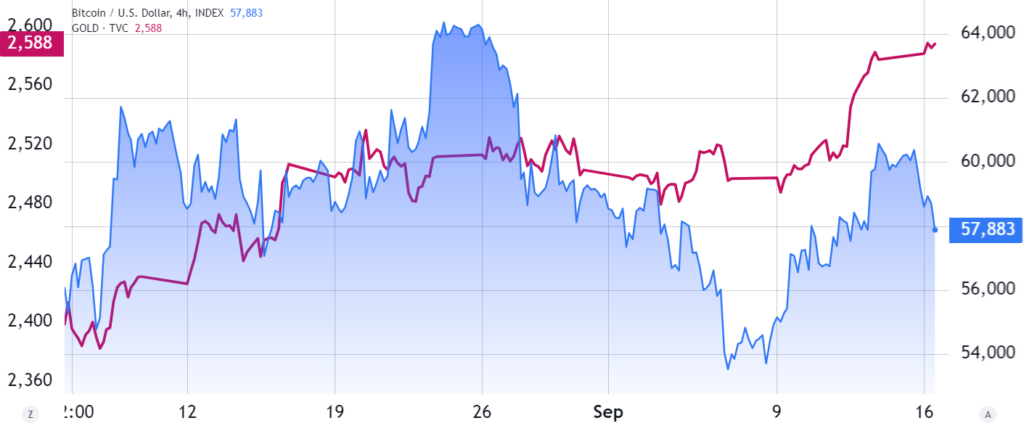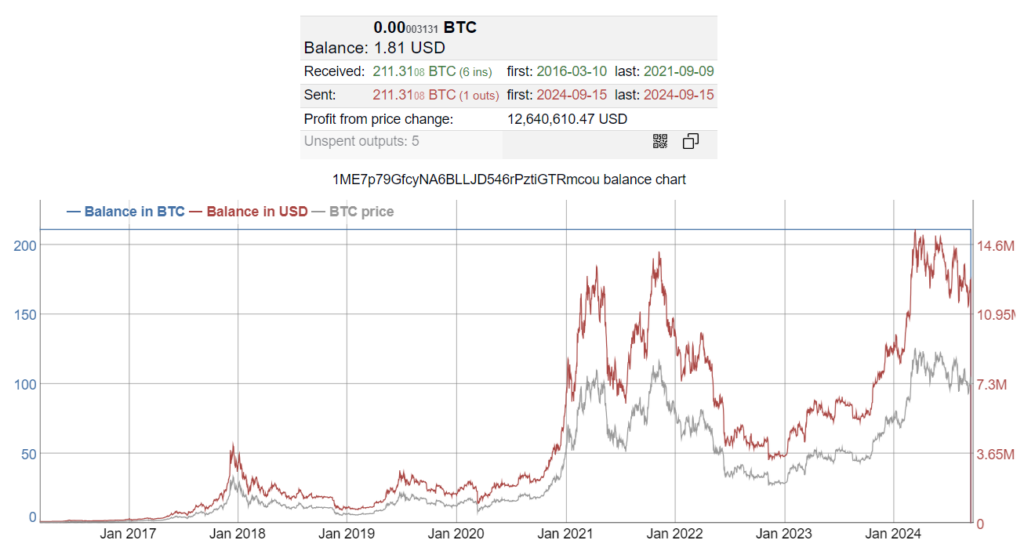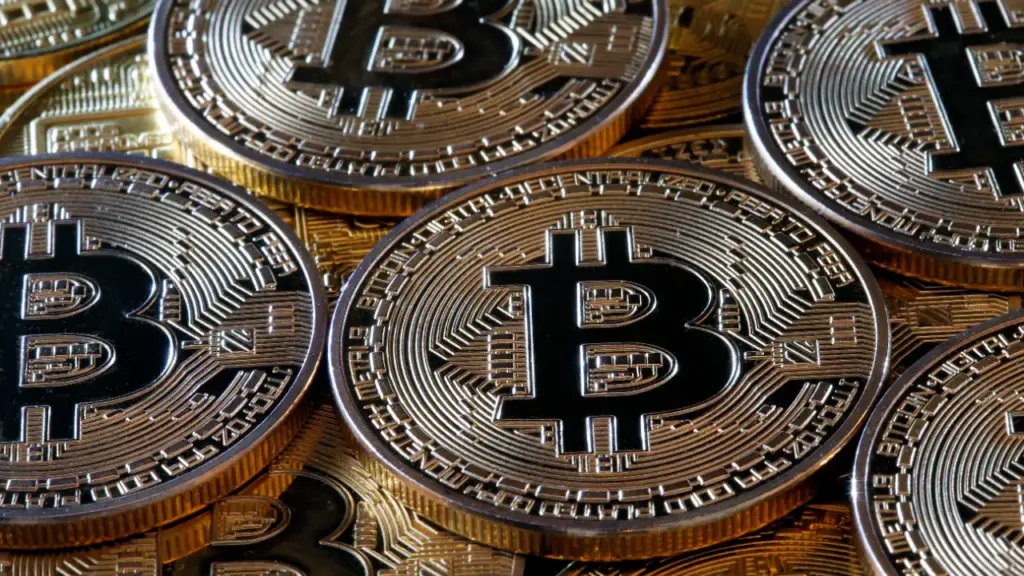Weak economic data from China and uncertainty over the Fed rate cut have pushed Bitcoin price near $58,000, erasing gains from its rapid surge on September 13.
Between September 15 and September 16, the price of Bitcoin fell 4.1%, reaching $57,595 after being rejected at the $60,000 mark.
The gains from September 13, when the price of Bitcoin surged from $57,890 to $60,580 in less than ten hours, were erased by this collapse.
A few observers link the current surge in Bitcoin to the US dollar’s depreciation, which also happened to coincide with gold’s record high.
Others counter that the recent $1.11 billion acquisition of Bitcoin by MicroStrategy and inflows of $263 million into Bitcoin spot exchange-traded funds (ETFs) contributed to the bullish momentum on September 13.

Notwithstanding these circumstances, the inability of the price of Bitcoin to close over $62,000 for almost three weeks has made bullish traders increasingly wary.
Before the event, traders had little motivation to position themselves aggressively because it was anticipated that the US Federal Reserve would reduce interest rates and soften some of its contractionary monetary policies.
The Federal Open Market Committee (FOMC) meeting on September 18 could result in a 0.50% interest rate drop, which would be good for risk-on markets.
However, investors’ attention to stocks could slow the pace of Bitcoin. With significant cash reserves, big IT companies continue to report good earnings and bolster stock prices through share repurchase plans.
The S&P 500 index is currently trading just 1% below its all-time high.
But riskier markets might suffer if the Fed decides to decrease interest rates by 0.25% instead of 0.25%.
A greater cost of capital for consumers and companies may discourage employment and spending, which would be detrimental to corporate profits and might even make problems worse in the already precarious commercial real estate market.
Slowing Economic Growth In China Fuels Uncertainty
Investors continue to have concerns about China’s economic future, which affects the price of Bitcoin as well. China’s retail sales increased by just 2.1% in August over the same month last year, according to data released on September 14.
This is a decrease from the 2.7% rise observed in the preceding months. In a similar vein, China’s industrial production increased 4.5% in August after growing 5.1% year over year in July.
The Cornell University professor of international commerce and economics, Eswar Prasad, stated to CNBC that “the short-term issues related to domestic demand and the long-term issues related to property prices and so on, have not been doing well at all.”
Prasad issued a warning, stating that the second half of the year’s forecast for China’s economy is currently “pretty close to red.”
Therefore, macroeconomic issues pose serious short-term dangers to the price of Bitcoin.
Since Bitcoin serves as both an autonomous financial system and a hedge against prospective government moves meant to stimulate economies through monetary expansion, one may argue that the cryptocurrency would eventually recover.
Conversely, traders usually turn to short-term US government bonds, gold, and cash during uncertain times.
Dormant Bitcoin Addresses And Rising Regulatory Risks
Two recent developments have hurt the market mood despite solid inflows into spot Bitcoin ETFs and MicroStrategy’s ongoing high demand.
On September 15, 211.3 BTC were transferred from a Bitcoin address that had lain dormant for the previous nine years to the Kraken exchange, according to Sani, an onchain analyst and TimeChainIndex founder.
The $12.7 million transaction implied that long-term holders were selling.

Furthermore, the US Securities and Exchange Commission (SEC) expanded its complaint against Binance, intensifying its legal action, which negatively impacted investor sentiment.
Tokens such as Axie Infinity, Filecoin, and Cosmos are now categorized by the SEC as unregistered securities, and the agency asserts that Binance did not give sufficient disclosures.
Ultimately, investors’ interest in Bitcoin has decreased even more as a result of the increased regulatory risks associated with the biggest cryptocurrency exchange, in addition to macroeconomic uncertainties.
